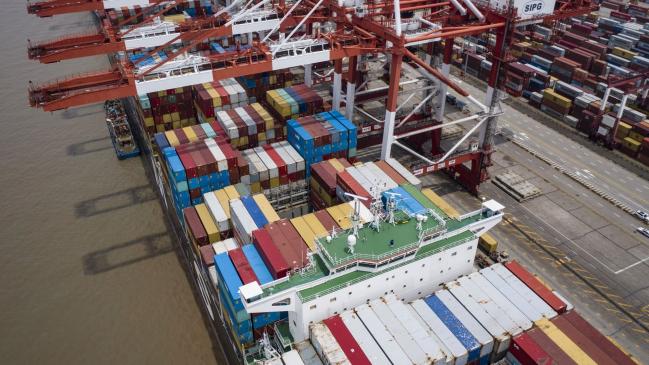(Bloomberg) -- Chinese President Xi Jinping called for setting up independent and controllable supply chains to ensure industrial and national security, just as the U.S. moves to cut China off from key exports.
“We must strive to to have at least one alternative source for key products and supply channels, to create a necessary industrial backup system,” Xi said in an April speech on the nation’s economic development that was only published Saturday by the Qiushi Journal, a publication of the ruling Communist Party. The magazine didn’t say why it had waited to release the remarks.
Xi said the impact of the coronavirus epidemic exposed hidden risks in China’s industrial and supply chains, without elaborating, thus necessitating “independent, controllable, safe, and reliable” chains.
Beijing last week outlined strategies for greater self-sufficiency as it unveiled its five-year economic plan after a plenum of top leaders and as tensions with the U.S. intensify. The U.S. has pressured allies to shun equipment from Huawei Technologies Co., barred dozens of China’s largest tech companies from buying American parts, and even slapped bans on ByteDance Ltd.’s TikTok and Tencent Holdings (OTC:TCEHY) Ltd.’s WeChat.
Read more on how China wants to build its own core technology
Initial details of the five-year plan stressed the need for sustainable growth and also pledged to develop a robust domestic market. Officials didn’t specify the pace of growth they would seek over the period, but said the National Development and Reform Commission would work on guidelines to be submitted to country’s parliament in March.
Xi’s April speech called for strengthening China’s advantages, saying its strong position in international industrial chains could act as a deterrence for external parties to cut off supply. He also called for China to consolidate its role as a global leader in the digital economy, and actively participate in formulating international rules in digital currency and digital tax to create new competitive advantages.
Xi emphasized the role of state-owned enterprises -- a sticking point in trade negotiations with the U.S. -- calling them “an important pillar and support for national rejuvenation and for the party to govern.” He said SOEs must be “stronger, better, and bigger,” but that they also needed reform, without specifying.
The speech also touched on expanding domestic demand, improving urbanization strategies, optimizing technology resources, and prioritizing the environment and public health.
©2020 Bloomberg L.P.

